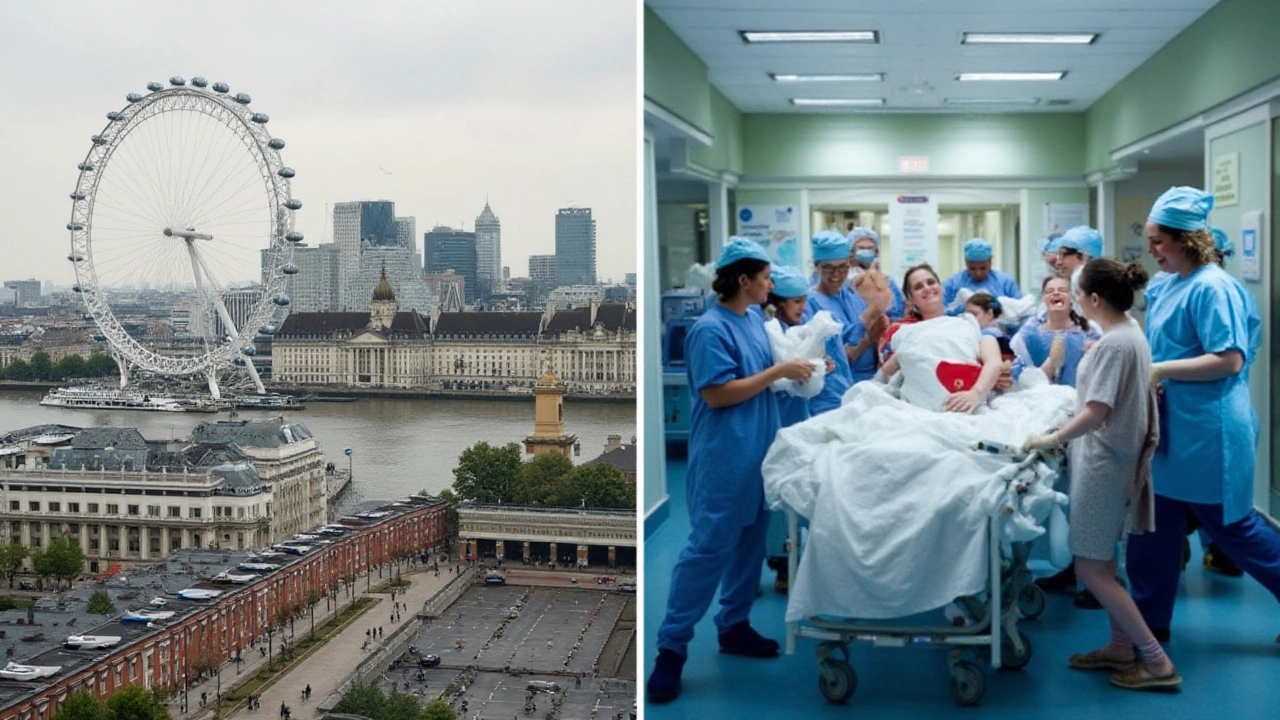England Healthcare: What You Need to Know About the NHS and Private Options
If you live in England or are planning a visit, the health system can feel like a maze. The good news? It’s mostly clear‑cut once you break it down. Below you’ll find the basics of the National Health Service (NHS), how private health insurance fits in, and the key facts every resident or traveler should have on hand.
How the NHS Works for Residents
The NHS is tax‑funded, free at the point of use for most services, and organised by region. You’ll need a National Insurance number and a GP (general practitioner) registration to unlock full benefits. Once you’re on a GP’s list, you can book appointments, get referrals, and receive prescriptions without paying per visit.
Waiting times are the most talked‑about issue. In 2025, average waits for non‑urgent elective surgery sit around 12 weeks, but urgent cases get seen within days. If a procedure lands on a long waiting list, you can explore three shortcuts: ask your GP for a fast‑track referral, consider private treatment (more on that below), or look into clinical trials that sometimes waive the wait.
Prescription charges are modest – £9.35 per item in England – but many qualify for free prescriptions, such as those over 60, under 16, or on low income.
Private Health Insurance: When and Why It Makes Sense
Private health insurance isn’t mandatory, but a growing number of people pay for it to dodge NHS queues. In 2025, the average monthly premium sits between £50 and £120, depending on age, coverage level, and whether you add extras like dental or vision.
Private cover gives you faster access to specialists, the choice of hospital, and often a private room. It’s also handy if you need a procedure that the NHS deems “elective” and places on a long list. Keep in mind that most policies still require a referral from a GP – they don’t replace the need to be registered with the NHS.
For expats and high‑earning freelancers, private insurance can be a tax‑efficient way to secure comprehensive care, especially if you travel frequently across Europe. Many insurers offer a “NHS top‑up” option that covers only the gaps, saving you money while still giving you swift access when needed.
What about visitors? If you’re a tourist or short‑term worker, you’ll usually pay for NHS services unless a reciprocity agreement exists with your home country. Some travelers buy short‑term private policies that cover emergency care, which can be cheaper than paying NHS ‘non‑resident’ fees on the spot.
Bottom line: The NHS covers the bulk of health needs for residents, but private insurance offers speed, choice, and extra comforts. Deciding which route to take depends on your health priorities, budget, and how you value waiting time versus cost.
Looking for deeper dives? Check out our related articles: NHS Waiting Lists: What You Need To Know in 2025, Private Healthcare vs NHS: Which Is Better for UK Patients?, and Do Foreigners Get Free Healthcare in the UK?. Each piece breaks down costs, tips, and real‑world examples to help you make an informed decision.
Is England's Healthcare System Up to Par? An In-Depth Look
England's healthcare system, largely managed by the National Health Service (NHS), often sparks debates about its effectiveness and efficiency. Issues concerning wait times, funding, and comprehensive care are frequently discussed among both locals and expats. Understanding the interplay between public healthcare and private health insurance is crucial for navigating medical needs in the UK. This article explores how these factors impact healthcare in England today.

